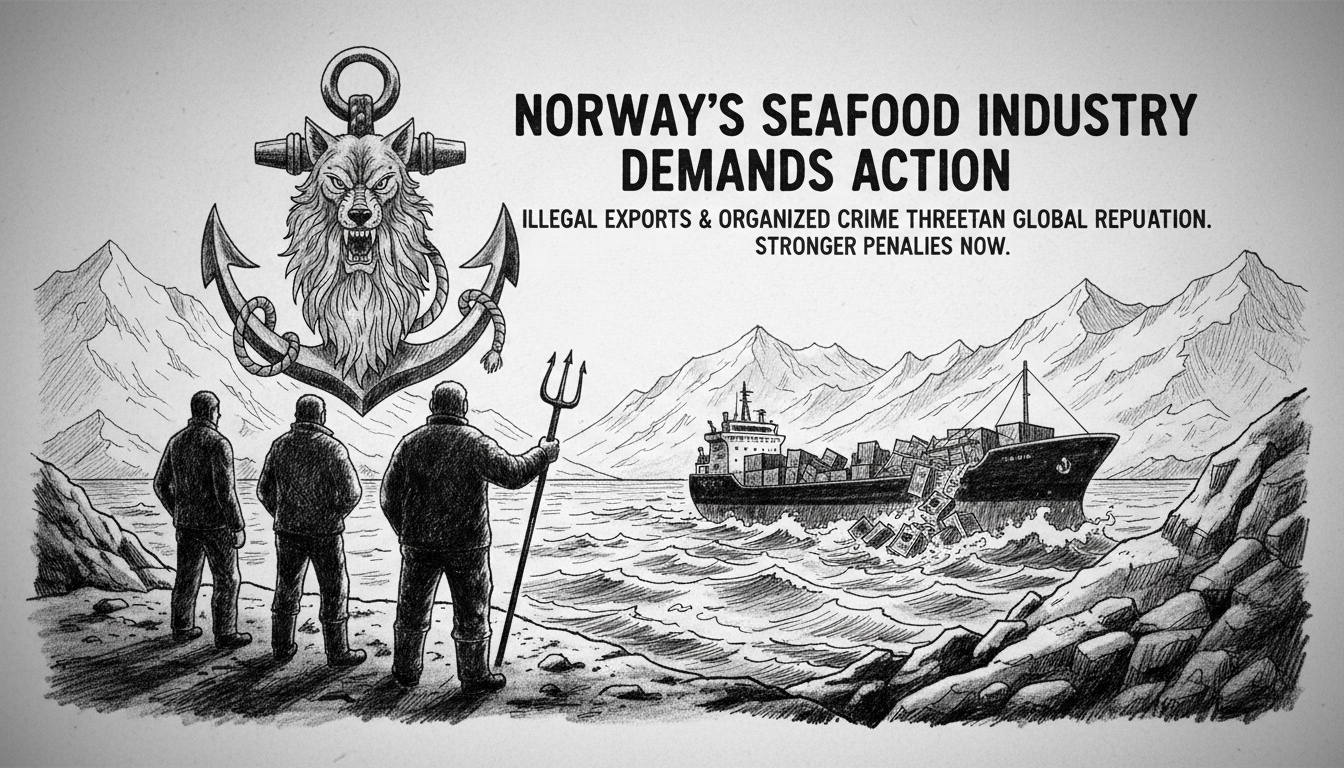Norway's seafood industry demands immediate government action following explosive revelations about illegal fish exports. A recent documentary series exposed Norwegian fish farming companies illegally exporting damaged and wounded fish to international markets. The investigation also uncovered suspected organized crime and potential document forgery within the aquaculture industry.
The Norwegian Seafood Federation, representing the industry's interests, calls for urgent meetings with government ministers. Industry leaders argue the current system fails to deter illegal activities effectively. They claim the risk of getting caught remains too low, while penalties for violations appear insufficient.
Robert H. Eriksson, the federation's managing director, emphasizes the stakes involved. Norwegian seafood has built its global reputation on quality and trust, he notes. When a few actors endanger this hard-won standing, they must face real consequences. The industry proposes concrete measures including temporary or permanent business closures and revocation of export licenses for serious violations.
Eriksson draws a powerful comparison to highlight the enforcement gap. If a driver speeds 120 km/h in a 60 km/h zone, police immediately confiscate their license. In our industry, the main rule seems to be getting a warning not to repeat the behavior. That approach simply doesn't work, he states.
The industry acknowledges its primary responsibility for compliance but insists authorities must share accountability. Proper oversight and enforcement mechanisms require government participation. This situation exposes vulnerabilities in Norway's export control systems that could damage the country's international trade relationships.
Norway's seafood industry represents one of the nation's most important export sectors. The country supplies salmon and other seafood products to markets across Europe, Asia, and North America. Maintaining consumer confidence remains crucial for this multi-billion dollar industry.
The current scandal threatens Norway's carefully cultivated image as a provider of premium, ethically produced seafood. International buyers may question their supply chains if illegal practices continue unchecked. This comes at a time when global consumers increasingly prioritize transparency and sustainability in food production.
The industry's strong response demonstrates recognition that self-regulation has limits. Without proper government enforcement, unethical operators can undermine the entire sector's reputation. This case mirrors challenges other Nordic countries have faced in balancing industry growth with regulatory oversight.
What happens next will test Norway's commitment to maintaining its position as a world leader in sustainable seafood. Both industry and government face pressure to implement reforms that prevent future violations while preserving market confidence.

